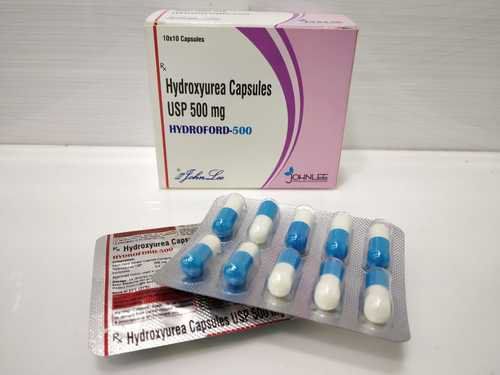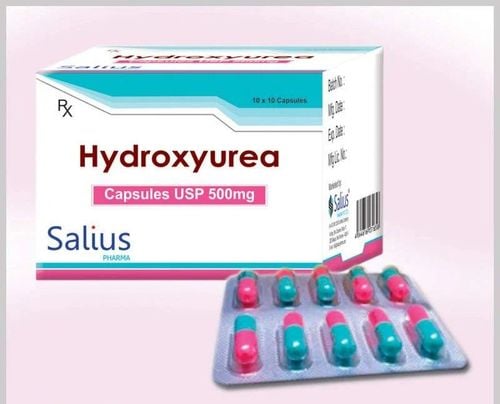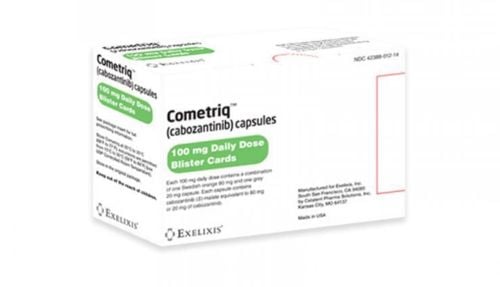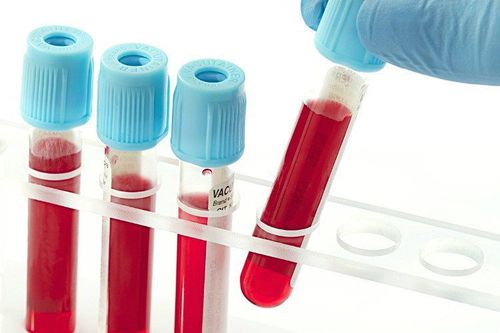This is an automatically translated article.
Hydroxyurea is prescribed to people with sickle cell anemia, to reduce the amount of pain caused by the disease and reduce the need for blood transfusions. Some brand name drugs are also used to treat certain types of cancer (such as chronic myelogenous leukemia, squamous cell carcinoma). However, it is necessary to pay attention to the side effects of hydroxyurea drugs during use.
1. What is Hydroxyurea?
Hydroxyurea is used alone or in combination with other drugs or radiation therapy to treat certain types of chronic primary leukemia (CML; a type of leukemia) and certain types of head cancer and neck (including cancers of the mouth, cheeks, tongue, throat, tonsils, and sinuses). Hydroxyurea (Droxia, Siklos) is used to reduce the frequency of painful attacks and reduce the need for blood transfusions in adults and children 2 years of age and older with sickle cell anemia (an inherited blood disorder in where red blood cells have an irregular shape - crescent-shaped and can't carry enough oxygen to all parts of the body). Hydroxyurea is in a class of drugs called anti-metabolites. Hydroxyurea treats cancer by slowing or stopping the growth of cancer cells in your body. Hydroxyurea treats sickle cell anemia by helping to prevent the formation of sickle red blood cells.
Hydroxyurea is available in capsule and tablet dosage forms for oral administration. The drug is usually prescribed once a day. When hydroxyurea is used to treat certain types of cancer, it is given once every Tuesday. Take hydroxyurea at the same time each day.

Hydroxyurea được sử dụng trong điều trị ung thư
2. Hydroxyurea side effects
Hydroxyurea can cause side effects. Tell your doctor if any of these symptoms are severe or do not go away: nausea, vomiting, diarrhea, loss of appetite, weight gain, mouth sores, throat, constipation, rash, pale skin, dizziness face, headaches, hair loss, changes in the skin and nails.
Some more serious side effects that you need to be aware of to notify your doctor and go to the hospital right away: heart palpitations, constant pain that starts in the stomach area but can spread to the back, sores sores or sores in the legs, pain, itching, redness, swelling or blisters on the skin, pain in the upper right part of the stomach, blood in the urine, yellowing of the skin or eyes, numbness, burning or tingling in the hands or feet, fever, cough, trouble breathing, and other breathing problems.
3. Caution when using hydroxyurea
Hydroxyurea severely reduces the number of blood cells in the bone marrow. This can increase your risk of serious infection or bleeding. If you experience any of the following symptoms, call your doctor right away: fever, chills, extreme fatigue or weakness, body aches, sore throat, trouble breathing, persistent cough and congestion , or other signs of infection; unusual bleeding or bruising; bloody or black, tarry stools; or vomit blood or brown substance that looks like coffee grounds.
Maintain regular checkups and tests as indicated. Your doctor will order some regular tests to check your body's response to hydroxyurea and see if the blood count has decreased. Your doctor may need to change your dosage or ask you to stop taking hydroxyurea for a period of time to allow the blood count to return to normal if it has dropped too low. Hydroxyurea may increase your risk of developing other cancers, including skin cancer. Take care to avoid prolonged or unnecessary exposure to sunlight and wear protective clothing, sunglasses, and sunscreen when outdoors. Talk to your doctor about the risks of taking hydroxyurea.
Above is important information about the side effects of Hydroxyurea, you can consult carefully before using to get the best treatment effect.
Please dial HOTLINE for more information or register for an appointment HERE. Download MyVinmec app to make appointments faster and to manage your bookings easily.
References: medlineplus.gov













